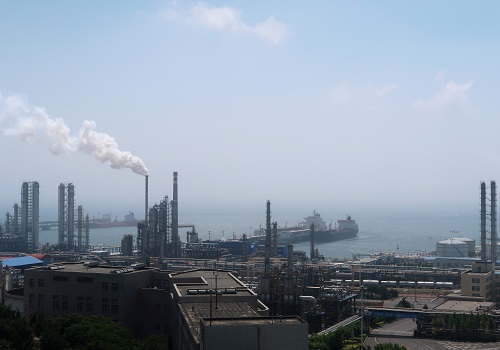Oil falls on China worries despite tighter US supply

Follow us Now on Telegram ! Get daily 10 - 12 important updates on Business, Finance and Investment. Join our Telegram Channel
Oil prices edged down in early trading on Wednesday, extending losses from a 1% drop in the previous session, as the lingering impact of weak economic data from China, the world's biggest oil importer, outweighed declining U.S. stockpiles.
Brent crude futures fell 21 cents to $84.68 a barrel at 0249 GMT, while U.S. West Texas Intermediate crude (WTI) slipped 20 cents $80.79 a barrel. Both benchmarks had weakened to their lowest since Aug. 8 on Tuesday.
"Concerns that China's faltering economy will weigh on demand offset tight supply in the oil market," ANZ analysts said in a client note.
"Crude inventories at the Cushing hub are seen to be falling to their lowest level since April. Asian refineries are also snapping up all available US cargoes of oil," they added.
U.S. crude stocks dropped by about 6.2 million barrels last week, according to market sources citing American Petroleum Institute figures. That was a much bigger draw than the 2.3 million drop analysts polled by Reuters expected.
U.S. government data on inventories is due later on Wednesday. [EIA/S]
China's economic activity data for July released on Tuesday remains the key bearish market driver, after retail sales, industrial output and investment figures failed to match expectations, fuelling concern over a deeper, longer-lasting slowdown in growth.
The July activity data has prompted some economists to flag risks that China, the world's biggest oil importer, may struggle to meet its growth target of about 5% for the year without more fiscal stimulus.
Beijing cut key policy rates to shore up activity and some analysts are hoping more stimulus measures will be implemented soon to jolt the economy and support demand for commodities such as oil.
"The persistent negative China data will raise the probability of increased stimulus measures, which would see a rise in commodity demand on broadly low inventory levels delivering a jump in prices," analysts at National Australia Bank said.
The outlook in the fourth quarter will "depend on the macroeconomic situation in China, primarily, albeit it looks like Saudi will continue to address that via their cuts, if needed", said Rystad Energy's research director Claudio Galimberti.
Supply cuts by Saudi Arabia and Russia, part of the OPEC+ group comprising the Organization of the Petroleum Exporting Countries (OPEC) and allies, have pushed up oil prices over the past seven weeks.












 320-x-100_uti_gold.jpg" alt="Advertisement">
320-x-100_uti_gold.jpg" alt="Advertisement">












